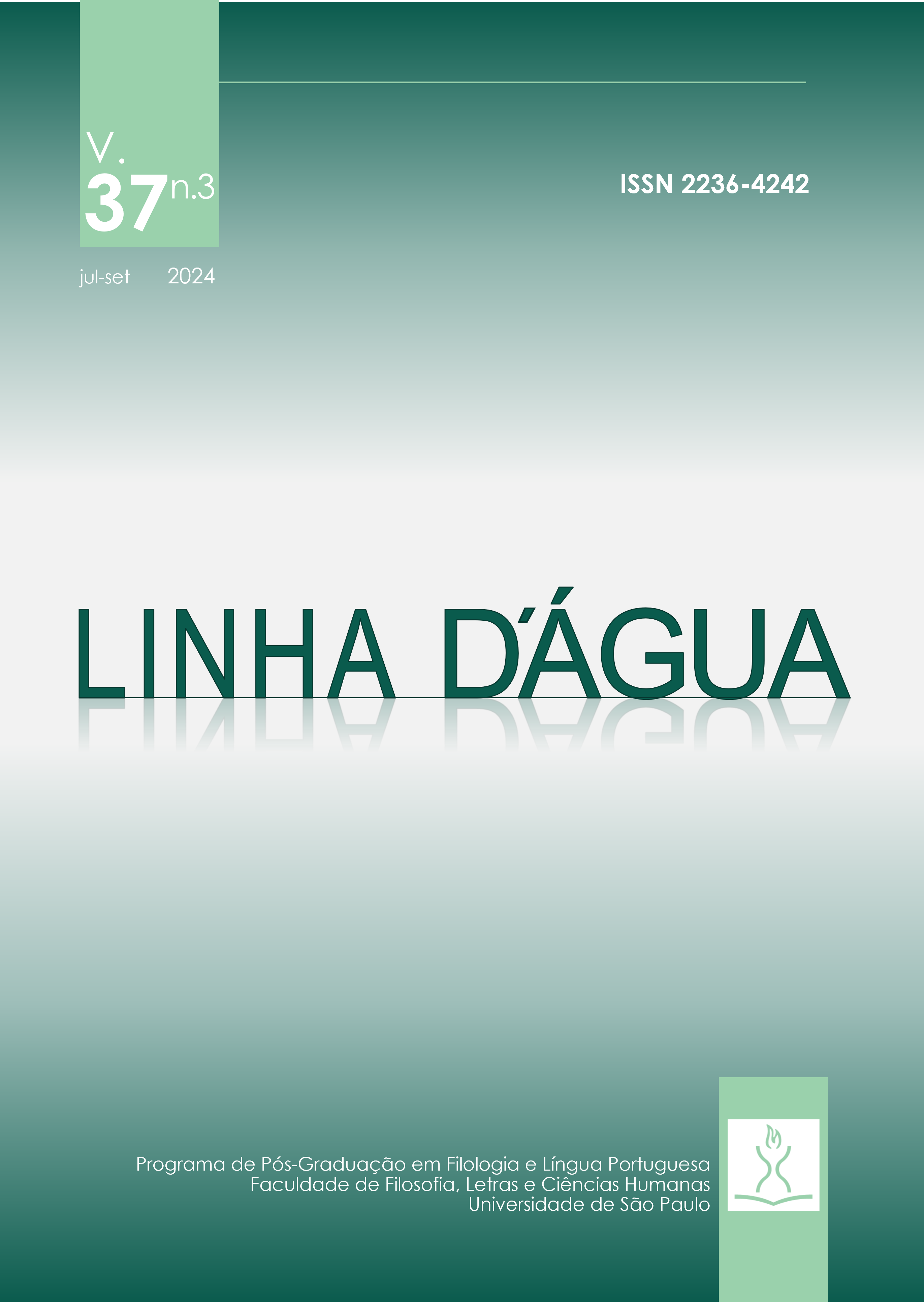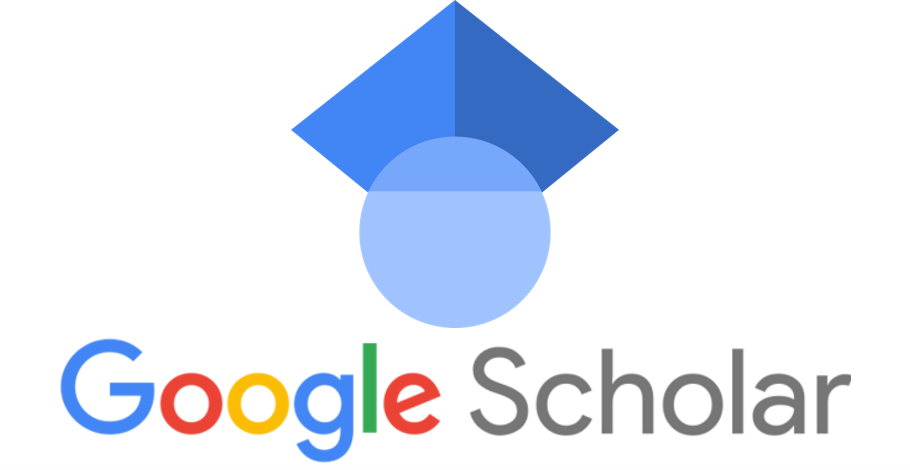A recategorização e os efeitos de humor na piada de surdo em Libras: uma análise da construção de sentidos do referente “surdo” no texto sinalizado
DOI:
https://doi.org/10.11606/issn.2236-4242.v37i3p352-372Palavras-chave:
Recategorização, Piada, Humor, Texto sinalizado, LibrasResumo
A partir de uma perspectiva cognitivo-discursiva da recategorização, este artigo tem o objetivo de investigar os casos de recategorização e seus efeitos na construção de sentidos do referente “surdo”, motivando o humor nas piadas de surdo sinalizadas em Libras. A pesquisa é de cunho qualitativo, com análise descritiva dos dados. A metodologia foi realizada em duas etapas: a primeira consistiu na seleção do corpus composto por 1 (um) vídeo de piada sinalizada; a segunda, na análise do corpus a partir dos critérios estabelecidos na metodologia. Os resultados evidenciam que a recategorização colabora para construção de sentidos do referente surdo nos textos sinalizados em Libras e contribui para engatilhar o texto humorístico surdo.
Downloads
Referências
APOTHÉLOZ D. ; REICHLER-BÉGUELIN, M. J. Construction de la référence et stratégies de désignation. In: BERRENDONNER e REICHLER-BÉGUELIN, M-J. (eds.). Du sintagme nominal aux objects-de-discours: SN complexes, nominalizations, anaphores. Neuchâtel: Institute de linguistique de l’Université de Neuchâtel, 1995. p. 227-71.
BARBOSA, T. B. Uma descrição do processo de referenciação em narrativas contadas em língua de sinais brasileira (libras). Dissertação (Mestrado em Semiótica e Linguística Geral) – Faculdade de Filosofia, Letras e Ciências Humanas da Universidade de São Paulo, 2013.
BRASIL. Lei n. 10.436, de 24 de abril de 2002. Dispõe sobre a Língua Brasileira de Sinais – Libras e dá outras providências. Diário Oficial da União, Brasília, 24 abr. 2002.
CANÇADO, M. Verbos psicológicos: a relevância dos papéis temáticos visto sob a ótica de uma semântica representacional. Tese (Doutorado em Linguística) – Universidade Estadual de Campinas, 1995.
CARMELINO, A. C. As dicas-piadas do Casseta e Planeta: denúncias e liberação. In: LINS, M. P.; CARMELINO, A. C. (orgs). A linguagem do humor: diferentes olhares teóricos. Vitória: UFES, Programa de Pós- Graduação em Estudos Linguísticos, 2009. p. 21-35.
DOURADO, M. K. S. Vozes surdas: um estudo de memes sobre a e pela comunidade surda. 2022. 114f. Dissertação (Mestrado em Estudos da Linguagem) – Centro de Ciências Humanas, Letras e Artes, Universidade Federal do Rio Grande do Norte, Natal, 2022.
FERREIRA-BRITO; L. LANGEVIN, R. Sistema Ferreira Brito-Langevin de Transcrição de Sinais. In: FERREIRA- BRITO, L. Por uma gramática de língua de Sinais. Rio de Janeiro: Tempo Brasileiro, 1995.
KOCH, I. G. V. Desvendando os segredos do texto. São Paulo: Cortez, 2002.
KOCH, I. G. V.; CUNHA-LIMA, M. L. Do cognitivismo ao sociocognitivismo. In: MUSSALIN, F.; BENTES, A. C. (org.). Introdução à Linguística: fundamentos epistemológicos. Vol. 3. São Paulo: Cortez, 2011.
KOCH, I. G. V. O texto e a construção dos sentidos. 4. ed. São Paulo: Contexto, 2000.
KOCH, I. G. V. A referenciação como atividade cognitivo-discursiva e interacional. Cadernos de Estudos Linguísticos, n. 41, p. 75-89, 2001.
LADD, P. Em busca da surdidade 1: Colonização dos Surdos. Lisboa: Surd'Universo, 2013.
LIMA, S. M. C. (Re)categorização metafórica e humor: trabalhando a construção dos sentidos. 2003. 171f. Dissertação (Mestrado em Linguística) – Centro de Humanidades, Universidade Federal do Ceará, Fortaleza, 2003.
LIMA, S. M. C. Entre os domínios da metáfora e metonímia: um estudo de processos de recategorização. 2009. 204f. Tese (Doutorado em Linguística) – Centro de Humanidades, Universidade Federal do Ceará, Fortaleza, 2009.
LIMA, S. M. C.; FELTES, H. P. M. A construção de referentes no texto/discurso: um processo de múltiplas âncoras. In: CAVALCANTE, M. M.; LIMA, S. M. C. (org.). Referenciação: teoria e prática. São Paulo: Cortez, 2013.
LEAL, C. L. Estratégias de referenciação na produção escrita de alunos surdos. Dissertação (Mestrado em Letras Vernáculas) – Universidade Federal do Rio de Janeiro, Rio de Janeiro, 2011.
LIDDELL, S. K. Grammar, gesture and meaning in American Sign Language. Cambridge: Cambridge University Press, 2003.
MONDADA, L.; DUBOIS, D. Construção dos objetos de discurso e categorização: uma abordagem dos processos de referenciação. In: CAVALCANETE, M. M.; RODRIGUES, B. B.; CIULLA, A. (Org.). Referenciação. São Paulo: Contexto, 2003.
MARCUSCHI, L. A. Da fala para a escrita: processos de retextualização. Recife: Universidade Federal de Pernambuco, 1998.
MORGADO, M. Literatura das línguas gestuais. Lisboa: Universidade Católica Editora, 2011.
MORATO, E. M. Linguagem e Cognição: As reflexões de L.S. Vigotsky sobre a ação reguladora da linguagem. São Paulo: Plexus, 1996.
POSSENTI, S. Os Humores da Língua. Campinas: Mercado das Letras, 1998.
RUTHERFORD, S. D. Funny in Deaf – Not in Hearing. Journal of American Folklore, v. 96, n. 381, 1983, p. 310-322.
QUADROS, R. M.; KARNOPP, L. B. Língua de sinais brasileira: estudos linguísticos. Porto Alegre: Artmed, 2004.
SALOMÃO, M. M. M. A questão da construção de sentido e a revisão da agenda dos estudos da linguagem. Veredas, Revista de linguísticos, v. 3, n. 1, p. 61-79, 1999.
SILVA, M. P. M. A construção de sentidos na escrita do aluno surdo. São Paulo: Plexus Editora, 2001.
SILVEIRA, C. H. Literatura surda: Análise da circulação de piadas clássicas em língua de sinais. 2015. Tese (Doutorado em Educação) – Universidade Federal do Rio Grande do Sul, 2015.
STROBEL, K. As imagens do outro sobre a cultura surda. 4 ed. Florianópolis: Editora da UFSC, 2016.
SUTTON-SPENCE, R. Literatura em Libras. Petrópolis: Arara Azul, 2021.
TRAVAGLIA, L. C. Texto Humorístico: o tipo e seus gêneros. In: CARMELINO, A. C. Humor: eis a questão. São Paulo: Cortez, 2015.
Downloads
Publicado
Edição
Seção
Licença
Copyright (c) 2024 Amanda Beatriz de Araújo Sousa, José Ribamar Lopes Batista Júnior

Este trabalho está licenciado sob uma licença Creative Commons Attribution-NonCommercial 4.0 International License.
A aprovação dos manuscritos implica cessão imediata e sem ônus dos direitos de publicação para a Linha D'Água. Os direitos autorais dos artigos publicados pertencem à instituição a qual a revista encontra-se vinculada. Em relação à disponibilidade dos conteúdos, a Linha D'Água adota a Licença Creative Commons, CC BY-NC Atribuição não comercial. Com essa licença é permitido acessar, baixar (download), copiar, imprimir, compartilhar, reutilizar e distribuir os artigos, desde que para uso não comercial e com a citação da fonte, conferindo os devidos créditos autorais à revista.
Nesses casos, em conformidade com a política de acesso livre e universal aos conteúdos, nenhuma permissão é necessária por parte dos autores ou do Editor. Em quaisquer outras situações a reprodução total ou parcial dos artigos da Linha D'Água em outras publicações, por quaisquer meios, para quaisquer outros fins que sejam natureza comercial, está condicionada à autorização por escrito do Editor.
Reproduções parciais de artigos (resumo, abstract, resumen, partes do texto que excedam 500 palavras, tabelas, figuras e outras ilustrações) requerem permissão por escrito dos detentores dos direitos autorais.
Reprodução parcial de outras publicações
Citações com mais de 500 palavras, reprodução de uma ou mais figuras, tabelas ou outras ilustrações devem ter permissão escrita do detentor dos direitos autorais do trabalho original para a reprodução especificada na revista Linha D'Água. A permissão deve ser endereçada ao autor do manuscrito submetido. Os direitos obtidos secundariamente não serão repassados em nenhuma circunstância.











